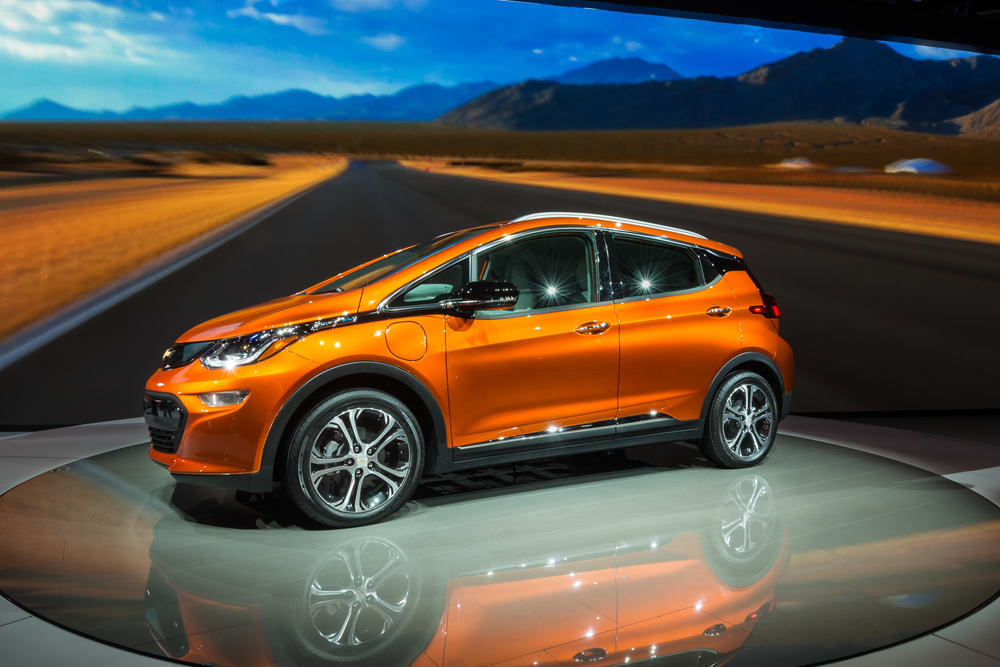

As gas prices increase and a conscience for environmentally-friendly options continue to gain traction with consumers, the market for fully-electric vehicles has never been so ripe. Although electric cars have never gotten their needed break into the market, Chevrolet appears determined to change that in the coming year. Enter the Chevrolet Bolt. If there's ever been a car that might entice Western consumers into the EV market, the Bolt may be just the ticket. With some of the cleanest energy ratings and relatively affordable price and sleek look, the Bolt will be a model to keep our eyes on. Here's a quick rundown on what we know so far.
The development of the 2017 Chevrolet Bolt
The Chevrolet Bolt electric car is scheduled for release in 2017. It was first revealed and previewed at the 2016 Consumer Electronics Show, where the promise of a big-name American EV instantly garnered hype and anticipation. Arguably the greatest feat for the Bolt is that it is going to be the first all-electric car with a manufacturer-suggested retail price under $50,000 USD. Chevrolet is developing 30,000 Bolt EVs for the first batch. Although Chevrolet appears very confident that the model's sales will take off, it will ultimately be left to the consumer market to decide whether it's worth the hype or not.
Compared to existing EV manufacturers like Tesla, which have been typically reserved for more affluent buyers, the Chevy Bolt may finally open up the EV market to the common market at large. Considering the implications of electric cars as a relatively clean alternative to standard vehicles, the potential rise of the first popular EV could have global ramifications on the environment and beyond.
Features of the Chevrolet Bolt
The Chevrolet Bolt's EPA (US Environmental Protection Agency) rating is even higher than the leading model by Tesla, the current leader in EV manufacturing. As estimated by the EPA, the Bolt should be able to get 238 miles out of each full charge. The car is powered by a nickel-rich lithium-ion battery. For the sake of being more compatible with existing production lines, the battery is placed in the same place as a standard gas tank. Due to the hi-tech of the battery, the battery alone comprises approximately a quarter of the vehicle's total value.
The Chevy Bolt should be able to clear 25 miles for each hour of charging. The battery is said to charge from empty to full in about 9.5 hours. For an additional bonus charge, consumers can order their Bolt to be "fast-charging." This will significantly cut down on the amount of time it will take for the car to charge up. On top of being fairly necessarily for longer trips, it is also said that it will significantly improve resale value further down the line.
Despite the Bolt's focus on environmental cleanliness and fuel efficiency, certain design choices have been made to favor aesthetic and comfort as well. For one, the low-hanging underbody maximizes interior space without necessarily adding extra mass to the compact size. The shape and look of the Bolt is born from an effort to balance sleekness with a look of comfort. Although the specs should sell the Bolt on most discerning buyers, this "cool" look may be what the Bolt needs to finally break into a wider market of consumers who haven't yet been sold on the idea of fully electric vehicles.
The reception of the Chevrolet Bolt
In a somewhat strange marketing choice, the Chevy Bolt has an incredibly similar name to the Chevy Volt, their previous hybrid-electric model. This closeness in name is further mirrored by the fact that the European Bolt is marketed as the Opel Ampera-E, while the hybrid Volt was simply the Opel Ampera. Regardless of the creative reasoning behind this choice, it does bring to mind the risk that consumers can easily get the two models accidentally confused with one another.
Chevrolet have made it clear they are very enthusiastic about the Bolt, and a very positive initial reception seems to suggest they have reason for feeling that way. However, Chevrolet dealers have been historically cold towards selling EV models, instead pushing potential buyers towards easier gas-powered sales. Chevrolet attests that it will be different this time. Despite the past attitudes of salesmen, the fact remains that it'll never have been so easy to sell an EV to the everyday consumer. Between the government standardized testing and warm consumer reviews, the initial reception towards the Chevrolet Bolt appears like the vehicle could be set for great things in the coming years.



